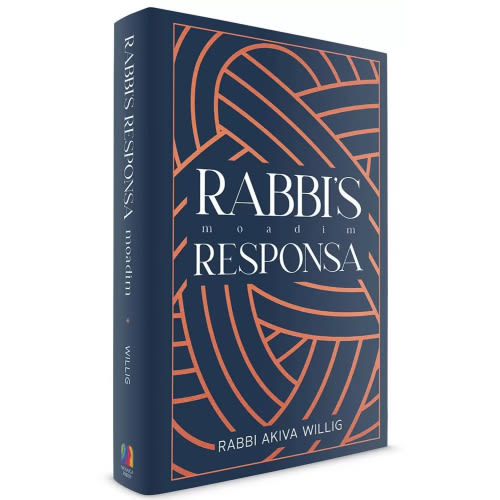
Chart It, Discard It
Keeping one’s mind neutral and focused on the good - the silver lining - is sometimes easier said than done, but it is definitely do-able. Here's how…

I have spent some time now speaking to Hashem about how to cast off judgments and negative feelings when the yetzer hara (evil inclination) starts pushing my buttons, trying to convince me to look at what is lacking and how something is wrong or is not in my best interest. Keeping my mind neutral and focused on the good—the silver lining—is sometimes easier said than done, but it is definitely do-able.
I developed a plan to help protect from negativity and keep us on the path of emuna.
With this in mind, I decided to “chart” it—meaning to classify experiences under one of four basic tests Hashem presents to us by way of the yetzer hara. To pass these four types of tests, we need to first identify which category the event falls under, and then take that initial negative reaction and quickly box it up and discard it. Then we are in a position to shift our thinking and to thank Hashem for helping us find the silver lining and the message He wants us to glean from the experience.
The first category of a “lack” mentality I call T.I.P.—Taking It Personally. This is when we judge another’s actions as offensive. We may make up a negative story in our mind that we are convinced is the reason for the actions of another. Some examples might be when a friend is over a half-hour late to meet us at a designated place, and we label him/her as insensitive; when a neighbor does not greet us with a smile; when our child hugs the housekeeper before he hugs us; or when our husband or wife forgets to do something we reminded him/her to do for two days prior. Instead of negatively assuming that what occurred was because the other person does not care about us or was remiss in some way, we shift to  giving the benefit of the doubt. The yetzer hara loves when we take it personally and when we start a pity party by judging the other person. Hashem, however, wants the opposite: For us to care about the other person and calm down our attention-seeking egos. So we need to box up the T.I.P.’s, send them to the garbage heap, and judge others favorably.
giving the benefit of the doubt. The yetzer hara loves when we take it personally and when we start a pity party by judging the other person. Hashem, however, wants the opposite: For us to care about the other person and calm down our attention-seeking egos. So we need to box up the T.I.P.’s, send them to the garbage heap, and judge others favorably.
The second category is called The Blame Game. This is when something seemingly not so good happens, and we blame another person for the incident. We may tend to completely forget that this person is only a stick in Hashem’s hand, and what occurred is for the very best. Some examples might be we tripped over someone’s foot, and the reaction is to angrily blame the “accident” on him or her, or the nurse giving the T.B. skin test jabbed us way too hard, or the housekeeper dropped our favorite vase and smashed it to smithereens. All these things contain messages from above and for our benefit. Blaming someone else is anti-emuna. One particular incident comes to mind: Our daughter’s husband put up a glass mezuzah on the door outside their room, dropped it, and it broke. Instead of labeling him as clumsy, G-d forbid, we saw Hashem’s hand in this. Not only were we able to repair the mezuzah, but, more importantly, in the process we discovered that the scroll was not a kosher one. This incident was an example of Hashem’s kindness, because it gave us the opportunity to replace it with a proper Torah scroll, which we would never have discovered if not for the supposed mishap. Everything Hashem does is for the very best. Playing the Blame Game only clouds our spiritual awareness.
The third category is The Control Freak. This is when we erroneously self-persecute ourselves for not making what we deem as the “right” decision. We blame ourselves for the way something turns out, and we play the “If Only” game. If only I would have said “yes” to going to the party, I would have met the love of my life. If only I would have bought the other pair of shoes, then my feet wouldn’t have hurt all day long. We give ourselves way too much power and control, and we forget that everything is from Hashem. We actually shortchange ourselves by doing this because we fail to focus on Hashem’s communication, and we miss an opportunity to connect to Him by wrongly thinking we are in control of outcomes. Success or failure is not in our control, but effort is. However, sometimes we sabotage ourselves by negative thinking, telling ourselves reasons why we can’t do something and then blaming ourselves for not taking action. So we chart these events under the category of “The Control Freak”, and after we chart them, we discard them and remember that only Hashem decides what will and will not occur.
The fourth and final category is The Direct Insult. This does not involve judgments, blame, or control. It is the precise and acute hit at our fragile egos. It is when Hashem chooses a messenger to abrasively confront us head-on. If we respond in a heated fashion, we fail the test. Exhibiting self-composure and remaining silent, with the realization that Hashem gave us a quick means of purification, is the key to victory. So keep track of any blatant insults, thank Hashem, be grateful for the cleansing, and then cast the incident into the discard pile.
Once we have mastered the proper responses in each of the four categories, we will have taken appropriate action to defeat the yetzer hara, strengthen our emuna, bolster our emotional intelligence, and serve Hashem in a way that brings us closer to the kind of behavior that He is expecting us to display.











Tell us what you think!
Thank you for your comment!
It will be published after approval by the Editor.